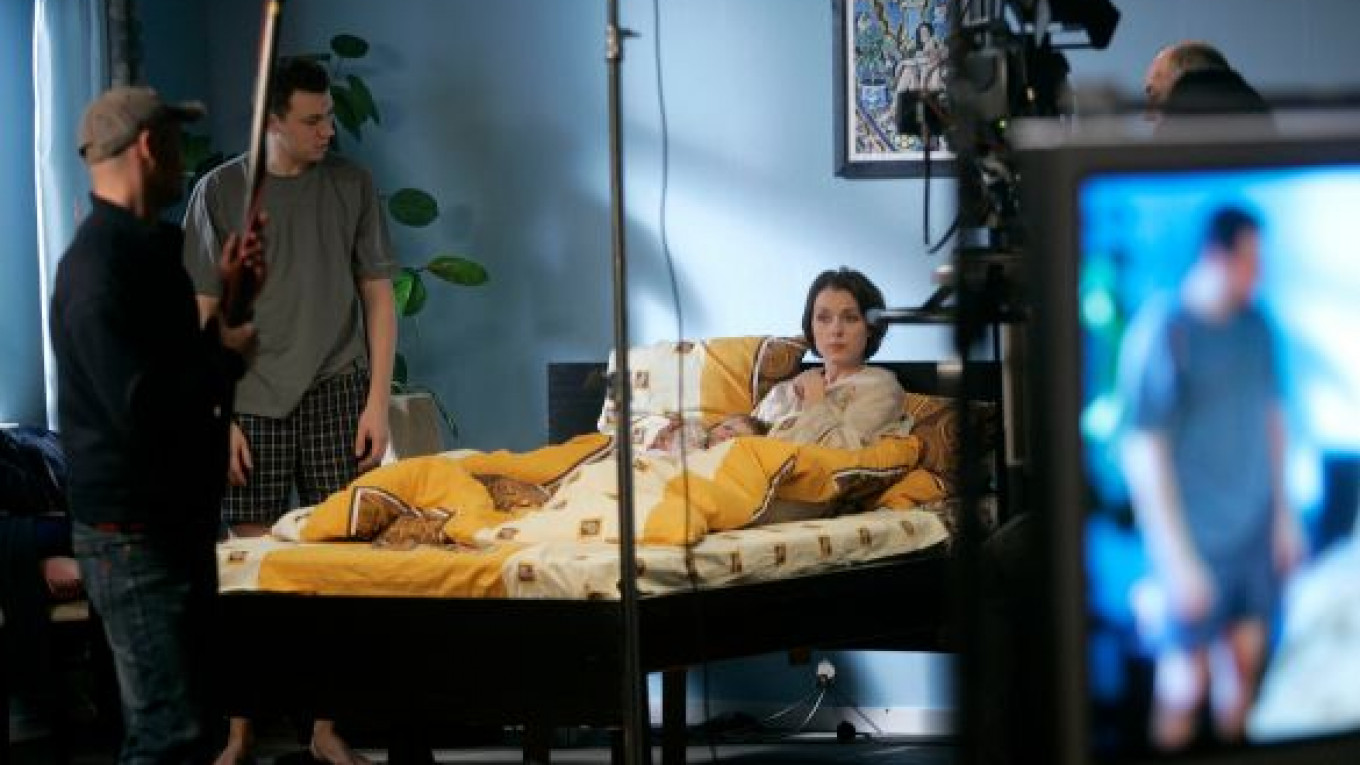LOS ANGELES — “Everybody Loves Raymond” — or so the show’s creator had reason to think before he went to Moscow to help adapt a Russian remake of his hit television comedy.
But when he got there, Phil Rosenthal quickly discovered that the Russians didn’t share his taste for the absurdity of everyday family life, wouldn’t pay for a studio audience and wanted to dress Raymond’s stay-at-home wife in stilettos.
Worse still, Russian television writers had no trouble telling Rosenthal that one of America’s most beloved sitcoms was not really funny at all.
Rosenthal recounts the hilarity and the horror in “Exporting Raymond,” which opens in U.S. movie theaters on Friday. The documentary marks his first foray into feature filmmaking.
“‘Everybody Loves Raymond’ is shown dubbed or subtitled in 148 countries, so I was led to believe it would go a little more smoothly than it did in Russia,” Rosenthal said in a recent interview. “I was led to believe that we did have something that was possibly universal.”
Starring stand-up comedian Ray Romano as easygoing sports columnist Raymond Barone and Patricia Heaton as his exasperated wife Debra, “Everybody Loves Raymond” was loosely based on Rosenthal’s own family life. Its nine-year run in prime-time ended in 2005, but the show lives on in syndication.
Rosenthal was dispatched to Moscow in 2008 to help oversee a Russian remake called “Everybody Loves Kostya.” Things got off to an ominous start when he was told he needed kidnap and ransom insurance.
But by far his biggest concern was persuading an ever-changing cast of Russian producers, directors, writers and actors to understand the humor in his show about multi-generational family life.
“My fear of being kidnapped was replaced by the fear of what they were going to do to my show. I didn’t know they wouldn’t allow a studio audience, which was so important to me,” he said.
“They really did give me the excuse that they would have to get chairs. I said I would pay for the chairs!” he said.
Over a period of nine months, Rosenthal also battled over casting, acting and costumes. Glamorous costume designer Yelena was determined to put the Debra character in extravagant cocktail attire in a bid to teach Russian women how to dress.
But Rosenthal is quick to point out that “Exporting Raymond” is not intended to make fun of the Russian television industry.
“The truth is I had the same struggles here in America, just with a different accent. The creative ‘no’ that you get is the same in every language. It is nice to know executives are the same the world over.
“The joke was on me. The movie might be about a guy who thinks he is an expert on something who goes to a land where nobody cares,” he laughed.
As for whether anybody in Russia did fall in love with Kostya, Rosenthal would prefer to reserve that cliffhanger for those who go to watch his documentary.
What he will say is that since 2009, Polish, Egyptian, Dutch, Israeli and British television makers have all sought permission to remake “Everybody Loves Raymond” with their own national twists.
A Message from The Moscow Times:
Dear readers,
We are facing unprecedented challenges. Russia's Prosecutor General's Office has designated The Moscow Times as an "undesirable" organization, criminalizing our work and putting our staff at risk of prosecution. This follows our earlier unjust labeling as a "foreign agent."
These actions are direct attempts to silence independent journalism in Russia. The authorities claim our work "discredits the decisions of the Russian leadership." We see things differently: we strive to provide accurate, unbiased reporting on Russia.
We, the journalists of The Moscow Times, refuse to be silenced. But to continue our work, we need your help.
Your support, no matter how small, makes a world of difference. If you can, please support us monthly starting from just $2. It's quick to set up, and every contribution makes a significant impact.
By supporting The Moscow Times, you're defending open, independent journalism in the face of repression. Thank you for standing with us.
Remind me later.






